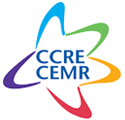
Malta Unitary state
| MALTA | / HISTORY |
History and trends
Malta is a parliamentary republic. It gained independence from the British Empire in 1964 and became a republic 10 years later. Its constitution was adopted in July 1964, and amended in December 1974 and January 1987.
The House of Representatives (Kamra tad-Deputati) is a unicameral parliament. Its 65 members are elected for a five-year term. Parliament has the power to make laws “for the peace, order and good government of Malta” (article 65 of the constitution).
According to the constitution, local councils are the only local government entities and are subordinate to the republic itself.
The Maltese archipelago consists of four islands – Malta, Gozo, Comino and Filfla. It stands at a strategically important position in the central Mediterranean, around 100 km from Sicily, 300 km from Cap Bon, and half-way between Gibraltar and the Suez Canal.
Malta experienced a steady wave of emigration throughout the 19th century, especially to the United Kingdom, the United States and Australia.
Malta was granted self-government in 1947, but this decision was repealed in 1959. Malta did not become a member of the Commonwealth until after the February 1962 elections, which were won by the conservative Nationalist Party. In the aftermath of the vote, prime minister George Borg Olivier demanded that Malta become an independent state within the Commonwealth (August 1962). A referendum was held in May 1964, and Malta gained independence on 21 September 1964.
Malta became a republic in December 1974.
Local level :
Prior to 1993, there were no local councils (or localities) in Malta. This situation changed with the adoption of the Local Councils Act in that same year, when 68 local councils were created.
Since 1993, Malta has been subdivided into 68 elected local councils (kunsill lokali), also known as localities. In 2009, councils were grouped into 5 regions (reġjuni). There are 54 local councils on the island of Malta and 14 on the island of Gozo.
Malta’s local councils were re-baptised by the Local Government Reform Act of 6 October 2009. Local councils are responsible for managing and delivering a limited number of specific services locally.
The Local Councils Act was amended in 2009 by the Local Government Reform Act (Act XVI of 2009). The reform created five regional committees, one for each of the country’s five regions (article 37A(1) of the Local Councils Act). The regional committees’ remits are determined by regulation by the minister responsible for local government (Minister for Home and Parliamentary Affairs), after consulting the Local Councils’ Association.
Local councils within the same region may authorise the regional committee to exercise the powers normally entrusted to them, provided that this decision is taken unanimously. To date, the local law enforcement system and street lighting have been devolved to the regional committees. There are also plans to transfer the management of regional libraries to the committees.
The regional committees have the power to pass regulations for the purpose of fulfilling their duties. And, for the first time, they now have administrative committees. The regional councils are recognised legal entities, are chaired by a regional president, and are duty-bound to fulfil the mandate devolved or delegated to them by ministerial order.
The new amendments to the constitution created the following five regions: Gozo Region, Northern Region, Central Region, South Eastern Region, and Southern region.
The constitution was adopted in 1964 and amended in 2001 to include a local government system. These 2001 amendments included the addition of a new chapter (Chapter XA) enshrining the local council system as follows (article 115A): “The State shall adopt a system of local government whereby the territory of Malta shall be divided into such number of localities as may by law be from time to time determined, each locality to be administered by a Local Council elected by the residents of the locality and established and operating in terms of such law as may from time to time be in force.”
The 1993 Local Councils Act, modelled on the European Charter of Local Self-Government, defines local councils as local authorities.
The local councils have limited fiscal autonomy. They cannot levy local taxes, and they receive no tax revenues from the state under a revenue-sharing arrangement. Most of the funding for Malta’s local councils comes directly from central government transfers (79.9% in the 2005/2006 financial year). The local councils also collect revenues from public service users, as well as from investments and fines for contravention of the law.
In 2005, subnational public spending accounted for 0.6% of GDP and 1.4% of total public expenditures – the lowest percentages in the European Union.





